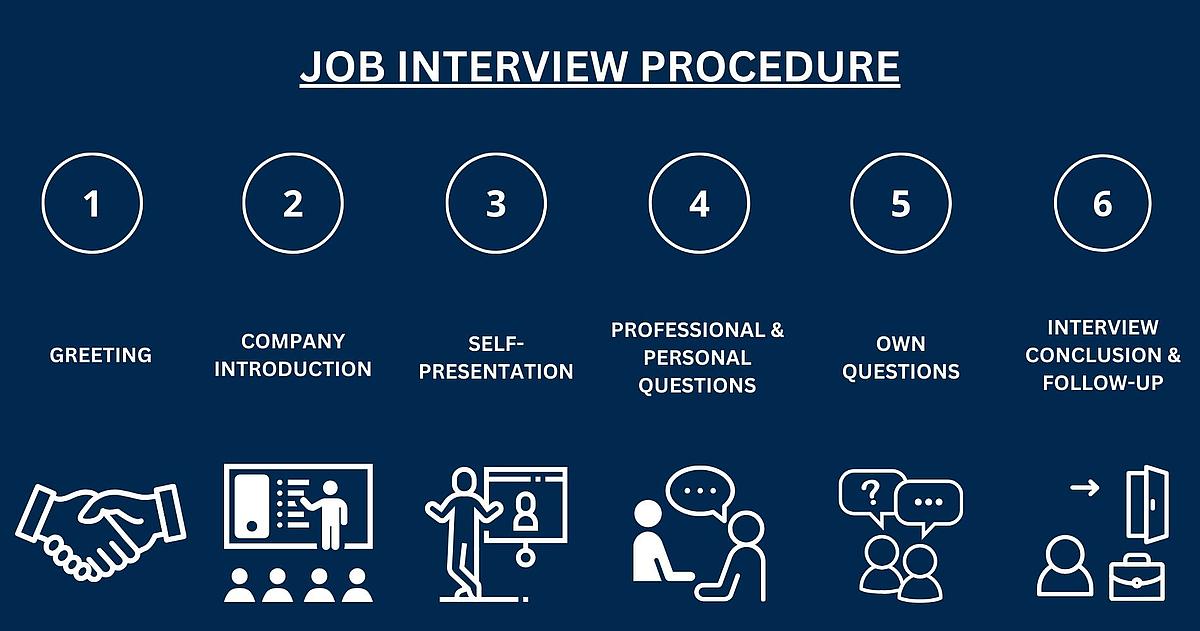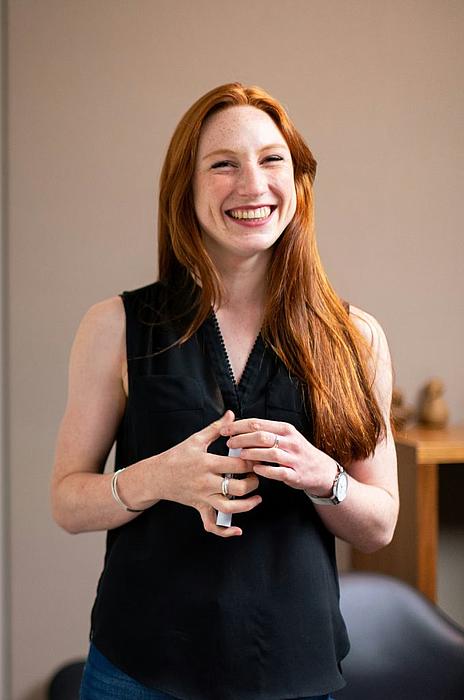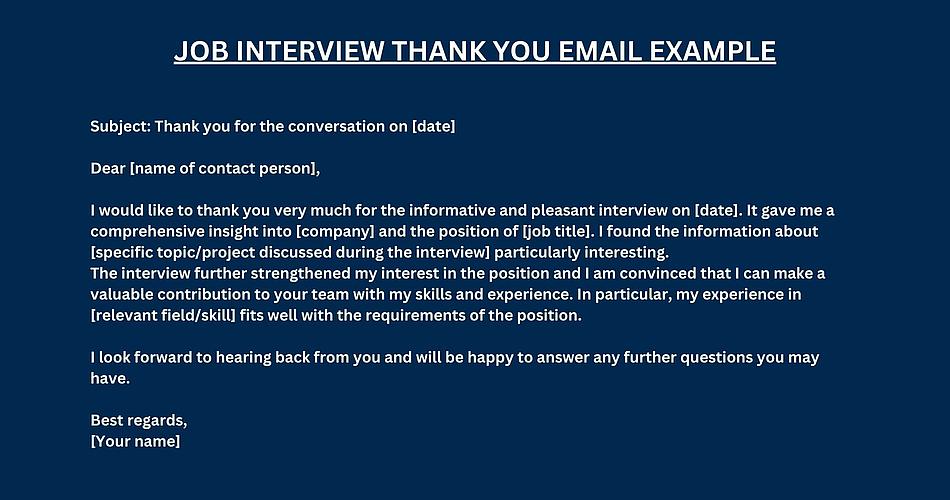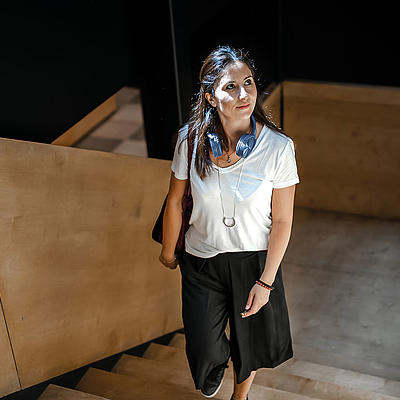This Website uses cookies to improve your visit on our website. More Info
10 Goldene Regeln für dein Bewerbungsgespräch
Ein Bewerbungsgespräch ist oft der entscheidende Schritt auf dem Weg zum neuen Job. Es bietet die Gelegenheit, sich der*dem potenziellen Arbeitgeber*in persönlich vorzustellen und einen bleibenden Eindruck zu hinterlassen. In diesem Artikel erläutern wir, wie man sich optimal auf ein Bewerbungsgespräch vorbereitet, welche Fragen häufig gestellt werden und wie man sich während des Gesprächs am besten präsentiert. Zudem geben wir nützliche Tipps, um typische Fehler zu vermeiden und die Chancen auf eine erfolgreiche Bewerbung zu erhöhen. Egal ob Berufsanfänger oder erfahrener Profi – eine gute Vorbereitung mit unseren 10 goldenen Regeln fürs Bewerbungsgespräch ist der Schlüssel zum Erfolg.
Aim of a Job Interview
The aim of a job interview is usually to get to know both the employer and the applicant better, in order to determine whether a mutually suitable collaboration is possible. The employer wants to find out whether the applicant has the necessary qualifications, skills and the right attitude to successfully fill the open position. On the other hand, the applicant is given the opportunity to learn more about the company, the tasks and the corporate culture in order to decide whether the position meets their professional and personal expectations.
Golden Rule No. 1: Set a Goal for Your Interview and Work Towards It
It is extremely important that applicants set their own goal for the interview and work towards it. A clearly defined goal helps to strategically steer the interview and present yourself confidently and purposefully. Here are some reasons why setting your own goal is crucial:
- Focus: A clear goal helps you focus on the most important points and convey relevant information that highlights your strengths and qualifications.
- Self-confidence: Knowing your goals boosts self-confidence and reduces nervousness as you are better prepared and know what you are working towards.
- Targeted questions: A goal allows you to ask specific questions to obtain important information about the position and the company that is relevant to the decision-making process.
- Alignment of expectations: By having your own objective, you can better check whether the position and the company actually match your own expectations and career plans.
- Professional impression: An applicant who has clear goals and pursues them during the interview leaves a professional and determined impression, which increases the chances of being accepted.
Having your own goal and working towards it is therefore an essential part of a successful interview.
Types of Job Interview
This table provides an overview of the most common types of job interviews and their special features.
| Type of interview | Description |
|---|---|
| Telephone interview | An initial conversation by telephone to exchange basic information and check suitability in advance. |
| Video interview | A virtual interview via video call, which often serves as a substitute for a face-to-face meeting. |
| Face-to-face interview | A classic, face-to-face interview in the company office. |
| Group interview | An interview with several applicants at the same time, often to assess team skills and interaction. |
| Panel interview | An interview with several representatives of the company who ask different questions. |
| Stress interview | An interview in which applicants are deliberately put under pressure to test their reactions. |
| Case study interview | An interview in which applicants have to complete a specific task or case study. |
| Second interview | Another face-to-face interview after a successful first interview, often with senior managers. |
| Assessment Center | A combination of various tests and interviews to comprehensively assess the suitability of applicants. |
| Lunch or dinner interview | A less formal interview that takes place over a meal and assesses interpersonal skills. |
Preparation for the Job Interview
Comprehensive preparation for the job interview increases your chances of leaving a positive and lasting impression. Here are the most important points to look out for:

- Company research
- Gather information about the company: Find out about the history, mission, values, products/services and corporate culture.
- Current news and developments: Be informed about current events and developments in the company.
- Understand the competitive environment: Know the key competitors and the company's position in the market.
- Analyze job advertisement
- Requirements and qualifications: Review the specific requirements and qualifications listed in the job ad.
- Duties and responsibilities: Understand the main duties and responsibilities of the position.
- Prepare a self-presentation
- Strengths and Weaknesses : Be prepared to talk about your strengths and weaknesses and how you are working on your weaknesses.
- Successes and experiences: Prepare examples of accomplishments and experiences relevant to the position.
- Motivation and goals: Be prepared to explain why you are interested in the position and the company and what your goals are.
- Prepare questions
- About the company: Prepare questions that show your interest in the company and the position.
- About the tasks: Ask questions that will help you better understand the daily tasks and expectations.
- About development opportunities: Ask about training opportunities and career paths within the company.
- Practice audition dates and questions
- Simulated interviews: Practice the interview with friends or family to gain confidence.
- Answers to common questions: Prepare answers to typical questions such as "Tell me about yourself", "Why do you want to work for us?" or "Where do you see yourself in five years?"
- Appearance and demeanor
- Clothing: Choose appropriate clothing that suits the company and the position.
- Punctuality : Allow enough time to arrive on time.
- Body language: Make sure your body language is open and confident. Smile, give a firm handshake and maintain eye contact.
- Technical preparation (for virtual interviews)
- Check technology: Make sure your camera, microphone and internet connection are working.
- Quiet environment: Choose a quiet place without disturbances for the interview.
- Have your documents ready
- Résumé and cover letter: Have copies of your résumé and cover letter handy.
- References and certificates: Prepare relevant references and certificates.
- Notepad and pen: Have a notepad and pen ready to take notes during the interview.
If you are still looking for information for your Résumé or your Salary Negotiation in the job interview, then take a look at our corresponding pages. Lots of interesting tips and tricks are waiting for you.
To the Overview page of the Guide Topics
Good or bad
Job Interview?

How do I know if the job interview went well or badly?
| Indicators of a good interview | Positive body language of the interviewer | Smile, nod and other signs of agreement and interest. |
|---|---|---|
| Open and relaxed posture. | ||
| Interest and enthusiasm | The interviewer asks detailed questions about your experience and skills. | |
| In-depth questions are asked about projects or tasks you have mentioned. | ||
| Pleasant interview atmosphere | The interview flows smoothly and feels like a real dialog. | |
| There is no tangible pressure or stress, and you feel comfortable. | ||
| Longer Conversation | The conversation lasts longer than planned. This can be a sign that the interviewer wants to find out more about you. | |
| Introduction of the company and department | The interviewer takes the time to talk in detail about the company, the department and the corporate culture. | |
| You will be introduced to other team members or future colleagues. | ||
| Discussion about next steps | The interviewer talks about the further course of the selection process and possible next steps. | |
| Specific timeframes for feedback are given. | ||
| Positive feedback | You receive direct or indirect positive feedback during or at the end of the interview. | |
| Indicators of a bad interview | Negative body language of the interviewer | The interviewer shows little interest, avoids eye contact or seems distracted. |
| There are few or no smiles and no approving gestures. | ||
| Short and superficial questions | Only basic or superficial questions are asked without going into more detail about your answers. | |
| The conversation seems like a series of standardized questions without any real interest. | ||
| Interruptions and haste | The interview is frequently interrupted or cut short. | |
| The interviewer seems to be in a hurry to end the interview. | ||
| No discussion about the future | There is no discussion about the next steps in the selection process. | |
| There is no mention of a timeframe for feedback or further interviews | ||
| Little interest in your questions | The interviewer shows little interest in the questions you ask and only gives brief answers. | |
| There are no detailed explanations to your questions. | ||
| Critical or dismissive comments | You receive critical or negative comments about your answers or your résumé. | |
| The interviewer seems skeptical or distant. | ||
| Short interview duration | The interview ends much earlier than planned. | |
| There is no time for additional questions or discussion. |
By paying attention to these indicators, you can better assess how your interview went and continuously improve.
Golden rule no. 2: What do you need to know about the company in the interview?
In a job interview, it is important to be well-informed about the company. This shows your interest and commitment and helps you to give well-founded answers and questions. Here are the most important points you should know about the company:

- Company history
- Founding year and founders: Know the year the company was founded and the people who founded it.
- Milestones and developments: Find out about important milestones in the company's history, such as expansions, mergers or significant product developments.
- Company structure
- Organizational structure: Understand the basic organizational structure and the most important departments.
- Executives: Know the names and positions of key executives, especially the CEO and the head of the department you are applying for.
- Products and services
- Range of products and services: Find out about the company's most important products and services.
- Innovation and development: Be aware of whether the company is known for particular innovations or developments in its industry.
- Corporate values and culture
- Mission and vision: Know the company's mission and vision.
- Core values: Find out about the core values and corporate culture to understand what is important in the company.
- Market position and competitors
- Marketposition: Understand the company's position in the market and its key competitors.
- Industry knowledge: Find out about the current market situation and industry trends that could affect the company.
- Latest news and developments
- Latest news: Be informed about recent news and developments around the company, such as new product launches, partnerships or economic challenges.
- Financial situation : If possible, find out about the financial situation of the company, especially if it is a listed company.
- Customers and target groups
- Main customers: Know the company's main customers and target groups.
- Customer satisfaction: Find outabout the company's reputation for customer satisfaction and service.
- Social responsibility and sustainability
- CSR activities: Understand the company's Corporate Social Responsibility (CSR) activities and how it is committed to social and environmental issues.
- Sustainability initiatives: Find out about the company's sustainability initiatives and their importance to the business model.
- Company size and location
- Number of employees: Know the approximate number of employees at the company.
- Locations: Be aware of the company's main locations in Germany and abroad.
- Career opportunities and further training
- Development opportunities: Find out about the internal career paths and further training opportunities within the company.
- Employee programs: Be aware of any special programs or initiatives for employees*, such as mentoring programs or health initiatives.
Thorough research and knowledge of these aspects of the company will enable you to give informed answers in the interview, ask specific questions and make a lasting impression.
Golden rule no. 3: Where can you find out more about the company for your interview?
There are several sources that you can use to gather comprehensive information about a company. By using these different sources, you can gain a comprehensive picture of the company and be well-prepared for your interview. Here are some of the most important options:
| Company website | About us | Read the sections "About us", "Our history", "Mission and vision", and "Company values". |
|---|---|---|
| Products and Services | Find out about the products and services we offer. | |
| Press Releases and News | View the latest news and press releases. | |
| Career page | Check the information on career opportunities, employee programs and training opportunities. | |
| Social Media | Follow the company profile to see recent posts, job openings and company news. | |
| Twitter and Facebook | Many companies share news, successes and important announcements here. | |
| Companies often use Instagram to provide insights into company culture and events. | ||
| Job portals and career websites | Glassdoor | Here you can find reviews and testimonials from employees, information on salaries and frequently asked interview questions. |
| Kununu | Offers similar information to Glassdoor, with a focus on German-speaking countries. | |
| Indeed | In addition to job offers, there are also company reviews and salary information. | |
| Press and news portals | Google News | Search for current news and articles about the company. |
| Business magazines | Websites of magazines such as "Forbes", "Fortune", "Handelsblatt" or "Wirtschaftswoche" often offer detailed reports and analyses. | |
| Industry reports and analyses | Market research companies | Websites of companies such as "Gartner", "IDC" or "Statista" offer industry reports and analyses that provide insights into the company's market position. |
| Trade journals and blogs | Read trade journals and blogs that specialize in the company's industry. | |
| Company reports | Annual reports | Many companies publish their annual or business reports on their website. These reports provide detailed information on the financial situation and future plans. |
| CSR reports | Corporate social responsibility reports can provide insights into a company's commitment to sustainability and social issues. | |
| Network and personal contacts | Xing and LinkedIn | Network with current or former employees of the company and ask about their experiences. |
| Alumni networks | Former colleagues or fellow students can provide valuable information and insights. | |
| Career fairs and networking events | Visit career fairs or industry events where the company is represented to speak directly with representatives. | |
| Credit reporting agencies | Creditreform, Dun & Bradstreet | These companies provide comprehensive financial and credit information, especially for larger companies. |
| Libraries and databases | University libraries | Many university libraries offer access to business databases and industry reports. |
| Public libraries | These often have subscriptions to business magazines and access to specialized databases. |
Job interview procedure
A job interview usually follows a structured procedure that allows both the employer and the applicant to exchange the necessary information.
Overview: Job Interview Procedure
Here is a schematic overview of the typical interview process:

Explanation: Job Interview Procedure
A well-structured job interview enables both sides to exchange the necessary information and make an informed decision. Here is a more detailed overview of the typical interview process:
1. Greeting and brief Introduction
- Arrival and welcome: Welcome by the interviewer, often accompanied by a brief introduction and small talk to lighten the atmosphere.
- Introduction of the participants: If several people are taking part in the interview, everyone introduces themselves briefly.
2. Company Introduction
- Overview of the company: The interviewer gives a brief introduction to the company, its history, mission, products/services and culture.
- Department and position: Explanation of the specific department and open position you are applying for.
3. Self-presentation of the Applicant
- Self-presentation: The applicant introduces him/herself, explains his/her professional background, qualifications and motivation for applying.
- Focus on relevant experience: Emphasis on experience and skills that are particularly relevant to the position sought.
4. Professional and Personal Questions
- Professional questions: Questions about your specialist knowledge, professional experience and specific skills that are relevant to the position.
- Personal questions: Questions about your soft skills, working style, motivation and goals.
- Behavioral questions : Questions about specific situations from your past to assess your problem-solving skills and behavior in specific contexts (e.g. STAR method: Situation, Task, Action, Result).
5. Own Questions
- Ask questions: Opportunity for you to ask your own questions. This shows interest and preparation.
- Topics for questions: Questions about the corporate culture, expectations of the position, further training opportunities and career paths.
6. Interview Conclusion
- Next steps: The interviewer explains the next steps in the application process, including timeframes for feedback.
- Thank you and farewell: You thank them for the opportunity and politely say goodbye.
7. Follow-up
- Reflection: You reflect on the interview and note down important points.
- Thank you e-mail: A short “Thank You” email to the interviewer, thanking them for the interview and confirming your interest in the position.


Why did I get a rejection again
after an Job interview?

Why companies decide against candidates
| Lack of fit | Qualifications | Your skills and experience do not exactly match the requirements of the position. |
|---|---|---|
| Professional experience | Too little or too much professional experience compared to the requirements of the position. | |
| Technical knowledge | Specific knowledge or technical skills are missing. | |
| Cultural fit | Company values | Your personality and way of working do not match the corporate culture. |
| Team dynamic | The team needs someone with a different personality profile to complement the team dynamic. | |
| Weak cover letter or résumé | Errors | Spelling mistakes or unclear wording in the cover letter or résumé. |
| Unstructured presentation | Unclear résumé that does not clearly highlight important information. | |
| Lack of individualization | The cover letter seems general and not specifically tailored to the company and the position. | |
| Poor interview | Insufficient preparation | You have not informed yourself sufficiently about the company or the position. |
| Weak self-presentation | Insecure or unclear presentation of your strengths and experience. | |
| Negative behavior | Nervousness, lack of self-confidence or inappropriate body language. | |
| Overqualification | Overqualified | Companies fear that you could quickly become bored or will sooner or later look for a more demanding position. |
| Competition from other applicants | Strong competitors | Other candidates are simply better suited or have more relevant experience. |
| Internal candidates | Sometimes there are internal candidates who already have an advantage. | |
| References and background | Negative references | Poor references from previous employers can play a role. |
| Insufficient background information | Lack of information or gaps in the résumé that are not adequately explained. | |
| Salary expectations | Salary expectations too high | Your salary expectations are above the company's budget. |
| Inflexibility | Lack of willingness to negotiate salary and benefits. | |
| Timing and need | Position canceled | The position was canceled or redefined due to internal changes. |
| Hiring freeze | The company has imposed a temporary hiring freeze. |
What can you do about rejections?
| Self-reflection and getting feedback | Reflection | Analyze each rejection and think about what you could do better next time. |
|---|---|---|
| Get feedback | Politely ask for feedback to find out specific reasons for the rejection and learn from it. | |
| Optimize your résumé and cover letter | Clarity and precision | Make sure your résumé and cover letter are clear and concise. |
| Individualization | Adapt your application documents individually to each position and company. | |
| Preparing for interviews | Research | Find out more about the company and the specific position. |
| Practice job interviews with friends or career advisors. | ||
| Build a network | Make contacts | Build a professional network and use platforms such as LinkedIn to connect with potential employers. |
| Recommendations | Use recommendations from people who work in your desired company or industry. | |
| Further education and self-improvement | Expand skills | Use the time to acquire additional qualifications or develop new skills. |
| Adaptability | Be ready to adapt to new demands and changes in the industry. | |
| Keep a positive attitude | Patience | The application process can be lengthy, but patience and perseverance are important. |
| Stay positive | Every rejection is an opportunity to learn and improve. |
It can be frustrating to receive repeated rejections on applications. Companies decide against certain candidates for a variety of reasons. These are some of the most common reasons. Through continuous self-improvement and targeted preparation, you can increase your chances of a successful application and ultimately find the right position.
Golden rule no. 4: outfit for the job interview
The right outfit for a job interview plays a crucial role, as it has a significant influence on the first impression. The choice of clothing should be based on the industry, the company and the position. Here are some tips and recommendations for suitable outfits:
Classic-Formal (Business-Formal)
Suitable for industries such as finance, law, business consultants and senior management positions.
Men's Outfit
- Dark suit (black, dark blue or gray)
- White or light-colored shirt
- Tie (subtle colors and patterns)
- Dark leather shoes
- Dark socks
- Neat hairstyle and clean beard if necessary
Ladies Outfit
- Suit or trouser suit (dark colors)
- Blouse or elegant top (light or neutral colors)
- Closed, elegant shoes (not too high heels)
- Discreet jewelry and make-up
- Neat hairstyle
Business-Casual
Suitable for industries such as marketing, advertising, technology and middle management positions.
Men's Outfit
- Chinos or trousers
- Shirt (also possible in color or with a subtle pattern)
- Jacket or sweater
- Leather shoes or clean, neat business sneakers
- Optional: tie
Ladies Outfit
- Cloth trousers or skirt (knee-length)
- Blouse or elegant top
- Blazer or cardigan
- Closed shoes or smart, elegant flats
- Discreet jewelry and make-up


Smart-Casual
Suitable for creative industries such as design, start-ups or casual corporate cultures.
Men's Outfit
- Dark jeans or chinos
- Polo shirt or shirt
- Blazer or cardigan
- Clean, well-kept shoes (e.g. Chelsea boots or loafers)
Ladies Outfit
- Dark jeans or trousers
- Blouse, elegant top or fine sweater
- Blazer or cardigan
- Smart, elegant shoes (e.g. ballerinas or boots)
General Tips
Regardless of style, the following tips will help you find the right outfit for your job interview.
- Cleanliness and neatness: Make sure your clothes are clean, ironed and in good condition.
- Fit: Wear clothes that fit well and in which you feel comfortable.
- Colors: Prefer neutral and muted colors to make a professional impression.
- Details: Make sure your nails are well-groomed, your shoes are clean and your overall appearance is neat.
- Accessories: Choose discreet and matching accessories. Avoid flashy jewelry and perfumes or aftershaves that are too strong.
By choosing the right outfit, you show professionalism and respect towards the potential employer, which increases your chances of a successful application.
Golden rule no. 5: What you should take with you to the job interview
Being well-prepared for a job interview means not only preparing yourself mentally and in terms of content, but also making sure you have all the necessary documents and items with you. Such preparation will help you make a professional and well-organized impression and ensure that you have all the necessary information and materials at hand. Here is a list of things you should take with you to a job interview:
| Application documents | Several copies of your résumé | Even if you have already submitted your résumé, it is a good idea to take several copies with you in case the interviewer does not have any to hand. |
|---|---|---|
| Copy of cover letter | Your cover letter can serve as a reference in case questions arise about your motivations or qualifications. | |
| References and certificates | Take relevant references, diplomas, training certificates or other proof of qualifications with you. | |
| Work samples/portfolio | If you work in a creative or technical field, work samples or a portfolio are helpful. | |
| Reference list | Contact details of references | A list of names, positions and contact details of former employers or other references who are willing to make positive statements about you. |
| Notepad and pen | Notepad | To jot down important points, questions or information during the interview. |
| Pen | A working pen is essential. | |
| Questions for the employer | List of questions | Prepare a list of thoughtful questions about the company, the position and the company culture that you can ask at the end of the interview. |
| ID card or passport | Proof of identity | Proof of identity is sometimes required to enter the company building. |
| Invitation letter or e-mail confirmation | Invitation to interview | Bring a copy of the invitation to interview with you, including details of the time, place and contact person. |
| Company research | Company research notes | Notes on important information about the company that you would like to mention or refer to in the interview. |
| Timetable or route description | Directions | A detailed route description or timetable for getting to the interview to ensure you arrive on time. |
| Small snack and water bottle | Food | A small snack and a water bottle can be helpful, especially if the interview takes longer or you have traveled a long way. |
| Bag or folder | Neat storage | A professional bag or folder to keep all your documents neat and organized. |
Golden rule no. 6: Punctuality is a must at the job interview!
Punctuality is an absolute must at a job interview and plays a key role in making a positive first impression. Here are some reasons why punctuality is so important:
Why punctuality is important:
- Respect and professionalism: Punctuality shows respect for the interviewer and signals that you value the other person's time.
- Reliability: It demonstrates that you are reliable and well-organized - qualities that are in demand in any job.
- First impression: First impressions count. Being late can immediately leave a negative impression and hurt your chances.
- Avoiding stress: Being on time gives you the opportunity to collect yourself, relax and mentally prepare for the interview.
- Sign of seriousness: It shows that you are taking the interview seriously and are motivated to get the job.
Punctuality at the interview is a simple but crucial aspect that can have a big impact on first impressions. It shows respect, reliability and professionalism - qualities that are valued in any job. With careful planning and preparation, you can ensure that you arrive on time and relaxed for your interview, creating the best conditions for a successful interview.

Typical
job interview questions

Job interview questions from the employer
| Technical questions | Behavioral questions | Questions about motivation and future plans |
|---|---|---|
| What are your most important strengths, and how can they be utilized in this position? | Describe a situation in which you had to work in a team. | Where do you see yourself in five years? |
| Why do you want to work for us? | How do you deal with conflict in the workplace? | Why do you want this position? |
| What experience do you have in [relevant area/function]? | Tell us about a time when you solved a difficult problem. | What motivates you most in your job? |
| Can you give an example of a successful project that you have led? | How do you prioritize your tasks when you are under pressure? | Why did you leave your last job? |
| How do you keep up to date in your field? | Describe a situation in which you have given or received feedback. | What goals do you have for your professional development? |
| What was your biggest professional challenge, and how did you overcome it? |
Your own job interview questions
| Questions about the position | Questions about the company | Questions about the team and collaboration | Organizational questions | Closing questions |
|---|---|---|---|---|
| Can you tell me more about the daily tasks and responsibilities of this position? | How would you describe the company culture? | Can you tell me more about the team I would be working with? | How is the onboarding process structured? | Is there anything else you would like me to know? |
| What does a typical day in this role look like? | What are the biggest challenges the company is currently facing? | What is the collaboration between departments like? | Are there opportunities for flexible working hours or working from home? | What are the next steps in the application process? |
| What expectations do you have of the person taking on this position? | How does the company promote the professional development and further training of its employees? | Who would be my direct manager and what would the working relationship look like? | What does the typical working week look like in terms of working hours and overtime? | When can I expect feedback? |
| How do you measure success in this position? | What is the typical career path for someone in this role? | Are there regular meetings or team building activities? | What tools and technologies are used for work? | Is there anything I need to prepare or submit? |
| What challenges can I expect in the first six months? | What are the company's long-term goals? |
These questions help to get a comprehensive picture of the position and the company while showing interest and commitment. They also help to find out whether the position is a good match for your skills, goals and expectations.
Golden rule no. 7: How to deal with job interview questions?
To deal well with typical questions in an interview and ask your own questions effectively, it is important to develop a strategy and follow some basic principles. Here are some tips:
Dealing with Questions from the Employer
- Preparation is the key
- Research: Find out all you can about the company, the industry and the position.
- Practice: Prepare answers to common questions and practice them out loud, either alone or with a trusted person.
- Answer clearly and precisely
- Structure: Make sure that your answers are clearly structured. Use the STAR model (Situation, Task, Action, Result) for behavioral questions.
- Examples: Use concrete examples from your professional experience to support your answers.
- Stay positive
- Emphasize strengths: Focus on your strengths and how they can contribute to the success of the company.
- Put weaknesses into perspective: When asked about weaknesses, mention a weakness and explain how you are working to improve it.
- Honesty and authenticity
- Be honest: Don't exaggerate and stick to the truth. Honesty comes across as authentic and trustworthy.
- Be yourself: Show your personality and authentic interest in the position and the company.
- Pay attention to body language
- Eye contact: Maintain eye contact to show interest and commitment.
- Body language : Make sure your posture is open and confident. Avoid crossed arms and nervous fidgeting.
Tips for your own Job Interview Questions
- Prepare relevant questions
- Create a list: Prepare a list of questions in advance that are important to you and show your interest in the company.
- Flexibility: Be prepared to adapt the questions or ask new questions based on the course of the interview.
- Listen and take notes
- Listen actively: Listen carefully and take notes of important points. This will help you ask relevant questions and show engagement.
- Take notes: Write down answers to your questions so you can come back to them later.
- Timing and order
- Timing: Ask your questions at the end of the interview when you are given the opportunity.
- Set priorities: Start with the most important questions if time is short.
- Show openness and interest
- Open questions: Ask open questions that require more than just a yes or no answer. This encourages a conversation and provides you with more comprehensive information.
- Signal interest: Show through your questions that you are interested in the company culture, the tasks and the development opportunities.

Examples of how to deal with typical Questions
- Why do you want to work for us?
- Answer: "I am very impressed by your commitment to innovation and sustainability. In particular, your recent projects in the area of [specific project or product] have piqued my interest. I am convinced that my experience in [relevant field] and my passion for [specific topic] fit perfectly with your company philosophy."
- What are your greatest strengths?
- Answer: "One of my greatest strengths is my ability to analyze complex problems and develop creative solutions. In my last position at [previous employer], for example, I was able to successfully implement [specific example], which led to [positive result]."
- Where do you see yourself in five years?
- Answer: "In five years, I see myself in a position where I can continue to contribute to the development of innovative solutions: I strive to further develop my skills in [specific area of expertise] and continue to educate myself to make an even greater contribution to the company's success."
These strategies and approaches will enable you to appear confident and self-assured in the interview, which will significantly increase your chances of a successful application.
Golden rule no. 8: Inappropriate questions and taboo topics in job interviews
In a job interview, there are certain questions and topics that may be inappropriate or even legally problematic. By avoiding inappropriate questions and taboo topics, you will contribute to a professional and respectful interview that focuses on professional suitability and mutual benefit.
If you encounter inappropriate questions in the interview, you could respond in the following appropriate ways:
- Politely decline: If you are asked an inappropriate question, you can politely respond, "I prefer to focus on my professional qualifications and experience."
- Ask a follow-up question: Ask a follow-up question to steer the topic back to the professional context: "How does this information affect my ability to fulfill the requirements of the job?"
Here are some inappropriate questions and taboo topics to avoid in these ways:

Inappropriate Questions from the Applicant
| Salary | Questions such as "How much will I earn?" should only be asked when the employer brings up the subject of salary or at an advanced stage of the application process. |
|---|---|
| Vacation days and additional benefits | Questions about vacation days, bonuses or other additional benefits should also only be asked at a later stage. |
| Working hours | Questions such as "Can I leave early when I have finished my work?" can be interpreted as a lack of willingness to work if they are asked too early in the interview. |
| Home office | Questions about home office options should only be asked once the basic suitability for the position has been clarified. |
| Discounts and benefits | Questions about personal benefits, such as "Do I get employee discounts?", can come across as unprofessional if they are asked too early in the interview. |
| Negative comments | Avoid negative comments about current or previous employers, such as "My current boss is incompetent." |

Inappropriate Questions from the Employer
| Marital status | Questions such as "Are you married?" or "Do you have children?" are not permitted as they are not related to professional qualifications. |
|---|---|
| Planning children | Questions about family planning, such as "Are you planning to have children in the near future?", are not permitted. |
| Age | Questions such as "How old are you?" are discriminatory and not permitted. |
| Religion | Questions about religious affiliation, such as "Which religion do you belong to?", are not permitted. |
| Sexual orientation | Questions about sexual orientation, such as "Are you homosexual?", are absolutely taboo. |
| Health status | Questions about general health status, such as "Do you have any health problems?", are not permitted unless they relate directly to the ability to perform the specific duties of the job. |
| Disability | Questions about disability, such as "Do you have a disability?", are not permitted unless the disability is directly related to the job. |
| Political views | Questions such as "Which political party do you support?" are inappropriate. |
| Trade union membership | Questions about trade union membership, such as "Are you a member of a trade union?", are not permitted. |
| Previous convictions | Questions about previous convictions, such as "Do you have a criminal record?", are only permitted if the previous convictions are directly related to the job to be performed. |
Golden rule no. 9: Weaknesses & strengths in the job interview
A conscious and strategic approach to your strengths and weaknesses in the interview can help you to make a positive and authentic impression. Prepare well, be honest and show that you are willing to work on your weaknesses and use your strengths in a targeted manner.

Examples of Strengths for Job Interviews
- Problem-solving ability: "I have a strong analytical mindset and can quickly identify and solve complex problems. For example, in my last position, I identified a critical production problem and found a solution within a short period of time that increased efficiency by 20%."
- Communication skills: "I am a very strong communicator and can convey information clearly and concisely. In my last role, I regularly gave presentations to key stakeholders and explained complex issues clearly."
- Time management: "I am very good at time management and can prioritize several tasks at the same time and complete them efficiently. During my studies, I worked part-time and still always completed my tasks on time and to a high standard."
- Creativity: "I bring a creative approach to problems, and in my last position I developed several innovative marketing campaigns that increased sales by 30%."
Examples of Weaknesses in a Job Interview
- Difficulty delegating tasks: "I sometimes have difficulty delegating tasks because I want to make sure everything is done properly. However, I am learning to trust others and delegate responsibility to improve teamwork."
- Impatience: "I can be impatient at times, especially when it comes to completing projects quickly. I'm working on being more patient and appreciating the process more."
- Reluctance to network: "I tend to be introverted and sometimes find it difficult to actively approach others and network. However, I am making an effort to expand my comfort zone and take advantage of more opportunities for professional networking."
- Technical skills: "I have found that my technical skills can still be improved in certain areas. However, I regularly attend training courses to expand my knowledge and keep up to date."
Tips for dealing with Weaknesses and Strengths in an Interview
- Be honest but strategic: choose weaknesses that you can present authentically, but that do not have a critical impact on the position. At the same time, show that you are actively working to improve these weaknesses.
- Emphasize the positive: If you mention a weakness, also explain what measures you are taking to overcome it. This shows self-reflection and a willingness for personal development.
- Give examples: Support your statements of strengths and weaknesses with specific examples from your professional experience. This makes your statements more credible and vivid.
- Avoid standard phrases: Try to give original answers that are tailored to you instead of using common phrases.
- Find a balance: Show a balanced picture of yourself by honestly presenting both strengths and weaknesses. This conveys authenticity and self-confidence.

Golden Rule No. 10:
Emotions & body language in the application interview

Body language in a job interview
| Posture and appearance | Upright posture | Sit upright but relaxed. An upright posture signals self-confidence and commitment. |
|---|---|---|
| Shoulder position | Keep your shoulders straight and relaxed, not hunched or slouched. | |
| Eye contact | Direct eye contact | Maintain regular eye contact during the conversation without staring. This shows interest and attention. |
| Alternating eye contact | Do not just look at the interviewer, but also involve other participants in the conversation with eye contact. | |
| Gestures and facial expressions | Natural gestures | Use natural hand movements to emphasize your statements without exaggerating. Too much gesticulation can be distracting. |
| Smile | A friendly, authentic smile conveys openness and sympathy. | |
| Adapt your facial expressions | Adapt your facial expressions to the conversation to show interest and emotional intelligence. | |
| Hands and arms | Open hand position | Keep your hands open and visible instead of hiding or crossing them. This signals openness and honesty. |
| Do not cross your arms | Avoid crossing your arms in front of your chest, as this can appear defensive. | |
| Legs and feet | Keep your feet still | Avoid rocking or fidgeting with your feet. This can signal nervousness. |
| Keep your legs relaxed | Keep your legs calm and in a relaxed position. Crossed legs can be interpreted as defensive or relaxed depending on the context. | |
| Personal space | Appropriate distance | Make sure to respect the interviewer's personal space. Keep a sufficient distance so as not to appear intrusive. |
Emotions in the job interview
| Nervousness | Accept and regulate | It is normal to be nervous. Accept your nervousness and use breathing techniques to calm yourself down. |
|---|---|---|
| Think positively | Focus on your strengths and past successes to boost your self-confidence. | |
| Self-confidence | Positive attitude | Remind yourself that you have been invited because you are being considered for the position. This helps you to appear confident. |
| Visualization | Visualize a successful interview process to boost your self-confidence. | |
| Empathy and interest | Active listening | Show that you are actively listening and value what the interviewer is saying by nodding and verbal acknowledgement. |
| Show interest | Ask specific questions that show your interest and enthusiasm for the position and the company. | |
| Honesty | Be authentic | Be honest and authentic. Exaggerated self-presentation often comes across as untrustworthy. |
| Be open about weaknesses | Be open about weaknesses and show how you are working to improve them. | |
| Stress management | Preparation | Good preparation reduces stress. Know your documents, the company information and practise possible questions and answers. |
| Use breaks | Use short breaks in the interview to take a deep breath and collect yourself. |
Conscious and positive body language and an authentic approach to emotions can make a big difference in a job interview. They help you to make a confident, professional and likeable impression. Prepare yourself well, pay attention to your body language, and be open and honest about your feelings. This will increase your chances of a successful interview.
Job interview follow-up
Following up on a job interview is an important step in making a lasting positive impression and increasing your chances of getting the job. Here are some steps and tips on how to follow up effectively:
- Reflect on the interview
- Review notes: Go through your notes from the interview and record important points, information and impressions.
- Self-assessment: Analyze what went well and where you see room for improvement. This will help you to better prepare for future interviews.
- Write a “Thank You” email
- Timely: Send the “Thank You” email within 24 hours of the interview.
- Personalization : Write a personal message to each interviewer if you have spoken to several people.
- Content: Thank them for the opportunity, reiterate your interest in the position and highlight key points from the interview.
- Clarity and brevity: Keep the email clear and concise.

- Keep in touch
- Follow-up: If you do not hear back after the deadline specified in the interview, write a polite follow-up email asking about the current status of the selection process.
- Network: Network with the interviewer on professional networks such as LinkedIn if this was mentioned or signaled during the interview.
- Preparation for possible next steps
- Prepare for another interview: If a second interview or further steps have been announced, prepare for this by further deepening your knowledge of the company and the position.
- Inform references: Inform your references that they may be contacted and prepare them for possible questions.
- Document experiences
- Note learning experiences: Note what you learned from the interview and what strategies can be improved for future interviews.
- Obtain feedback: If you have the opportunity, ask for feedback on the interview process to further improve your skills.
- Mental closure
- Self-care: Job interviews can be stressful. Allow yourself time to relax and take care of yourself after the interview.
- Stay optimistic: Maintain a positive attitude, regardless of the outcome of the interview. Every experience brings you closer to your career goal.
Following up on a job interview is crucial to your overall impression and can significantly improve your chances of getting the job. Through careful reflection, a well-worded thank you email and a structured follow-up strategy, you will leave a professional and engaged impression. Use these steps to learn from each interview and continuously improve.
tip for job interviews: our checklist
By following this checklist, you will be well prepared for your interview and can make a professional and positive impression. Good luck!
| Before the interview | ||
|---|---|---|
| Research about the company | Company history | |
| Products/services | ||
| Corporate culture and values | ||
| Current news and developments | ||
| Read the job description | requirements and tasks carefully | |
| Prepare a self-presentation | Analyze strengths and weaknesses | |
| Examples of professional successes and challenges | ||
| Practice typical questions and answers | ||
| Rehearsal dates with friends or family | ||
| Choose an outfit | Appropriate, clean and ironed clothes | |
| Documents | Several copies of the résumé | |
| Copy of the cover letter | ||
| References and certificates | ||
| List of references | ||
| Notepad and pen | ||
| Invitation letter or e-mail confirmation | ||
| On the day of the interview | ||
| Punctuality | Allow enough time for the journey | |
| Arrive at least 10–15 minutes before the appointment | ||
| Small snack and water bottle | In case the interview takes longer | |
| During the interview | ||
| Confident appearance | Upright posture | |
| Firm handshake | ||
| Body language | Open and relaxed posture | |
| Regular eye contact | ||
| Friendly smile | ||
| Active listening | Showing attention by nodding and occasionally asking questions | |
| Clarity and precision | Giving structured answers (e.g. STAR method) | |
| Ask questions | Prepared, well-thought-out questions about the company and the position | |
| After the interview | ||
| Thank you email | Within 24 hours of the interview | |
| Personal and concise | ||
| Reflection | Analyze interview and note what went well and what can be improved | |
| Follow-up | If no feedback is received within the specified period, send a polite follow-up email |
Similar Study Guide Topics:
Résumé
Salary Negotiation
Salary Check
Work alongside your Studies
FAQ
The employer may not ask for personal information such as marital status, child planning, religion, sexual orientation, political views, health problems or disabilities during the job interview, unless they are directly relevant to the performance of the job.
In the interview, you should not ask questions about salary, vacation days or other benefits before the company brings up the topic. Also avoid questions that speak negatively about your current or previous employer and personal questions that have nothing to do with the position or the company.
The self-presentation in the interview should last about two to five minutes.
Thank them for the invitation, confirm the appointment and look forward to the interview. For example: "Thank you for the invitation to the interview. I confirm the appointment on [date] at [time] and look forward to the interview."
You should prepare yourself intensively about a week in advance by thoroughly researching the company, practicing typical questions and thinking about your self-presentation.
Interested in a study program? Request our Information Material now!
More exciting Degree Programs in Munich













